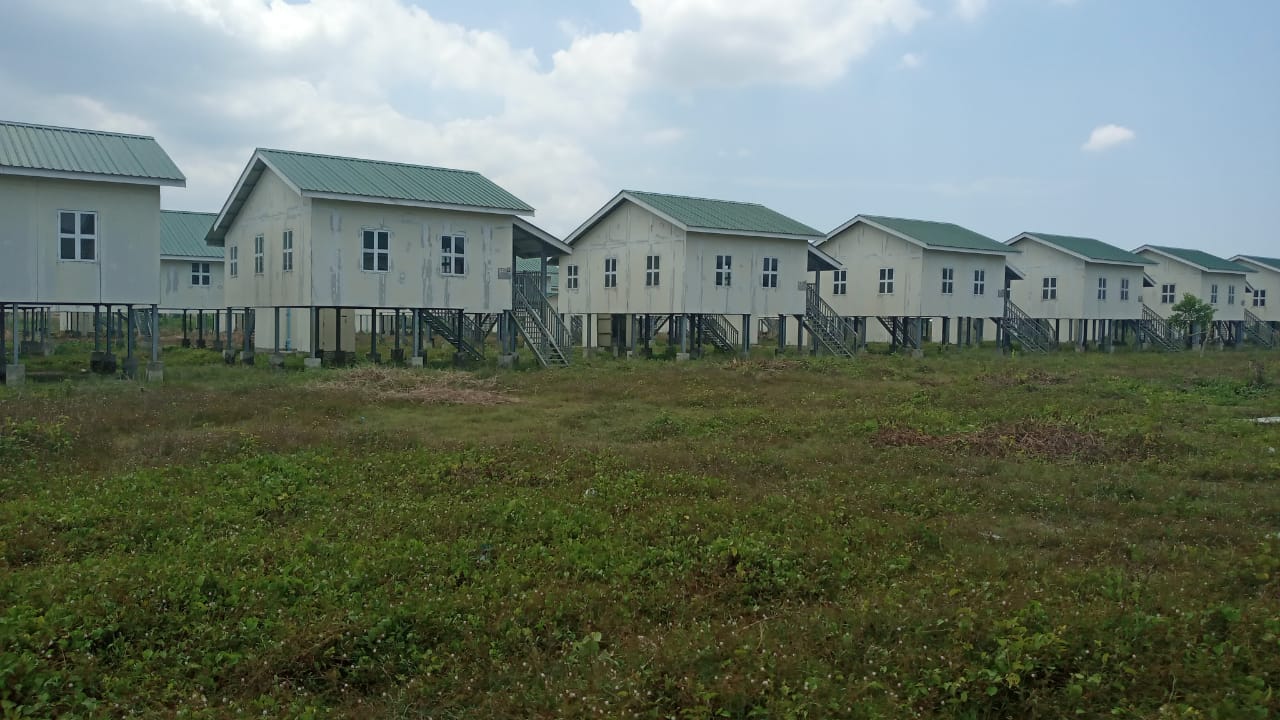A team of 20 Rohingya who on Friday visited two of 15 villages in Myanmar’s Rakhine State built for the repatriation of Rohingya refugees said that they want full citizenship, equal rights and access to their places of origin before their repatriation.
The Bangladesh-based team, which was accompanied by six Bangladesh government officials, also inspected infrastructure built in Rakhine’s Maungdaw Township with grants from the governments of Japan, India and China for the “repatriation and resettlement of refugees”.
Myanmar junta authorities also briefed the team about the possible benefits they would likely get in the villages earmarked for returning Rohingya.
One team member who wished to remain anonymous told The Irrawaddy that each returning family would be given a house, three acres of land for farming, seeds and agricultural material.
He said that those families who wish to build their own homes in the demarcated area can do so and that the regime will pay for them. The team member added that “there will be no barbed wire fence around the villages”.
During the tour the team also inspected the road that will connect the Rohingya villages to towns in Maungdaw Township where they will trade and do business.
A Maungdaw official informed the team that Rohingya children will be allowed to study and to go onto Sittwe University, said the team member.
“I didn’t like the village at all…they won’t be able to provide us with homes in our places of origin,” said Abu Taher on disembarking from the boat which ferried them to Myanmar in the morning and brought them back to Bangladesh in the afternoon.
Another Rohingya representative, Mohammad Solim, told a group of journalists in Teknaf that he had asked the Myanmar authorities for whom they built the village and whether the Rohingyas would be given citizenship rights.

Military regime officials said that Rohingya would be given special identity cards and within half a year would be able to travel outside Maungdaw Township.
“We will not get our original land back…we told them we do not want money, rather give us back our land and we will build our own houses,” he added.
He said that they wanted the same rights enjoyed by Myanmar’s other ethnic groups.
Mohammed Mizanur Rahman, the Bangladesh Refugee Relief and Repatriation Commissioner in Cox’s Bazar, also traveled with the team to Maungdaw Township. He said that the newly-built villages were not constructed on Rohingya land.
But he said that a team from Myanmar would visit the Rohingya in Cox’s Bazar to try and convince them to be repatriated.
He termed the initiative as part of a “confidence-building measure” for repatriation.
Rohingya human rights activist Aung Kyaw Moe, an advisor to the civilian National Unity Government‘s Ministry of Human Rights, told the Irrawaddy: “There is nothing for Rohingya refugees to see in Rakhine as the situation is the same as the one they fled in 2017 at the peak of the genocide. In some places, the situation is worse now than when they left. So, again, it is a kind of fake effort by the junta ahead of the coming hearing in front of the International Court of Justice.”
He added: “People saw the villages and said they will not go back to those conditions.”
The visit by the Rohingya team was the first step in the much-awaited repatriation of the hundreds of thousands of Rohingya refugees who fled Rakhine State for Bangladesh in 2017. A deal on their repatriation was signed by Bangladesh and Myanmar in 2018.
Myanmar junta officials have already verified a list of 1,100 refugees for repatriation, but moves to return them to Rakhine State have stalled, said Bangladesh officials.
At least two attempts to start the repatriation have failed, with Rohingya refugees refusing to return home without guarantees of citizenship and security.
In August 2022, China’s foreign minister Wang Yi assured his Bangladesh counterpart AK Abdul Momen during a visit to Bangladesh that China would facilitate the repatriation of the Rohingya to Rakhine State, where China had already constructed 300 houses, and offered to provide food for them for three to four months on their return.

















